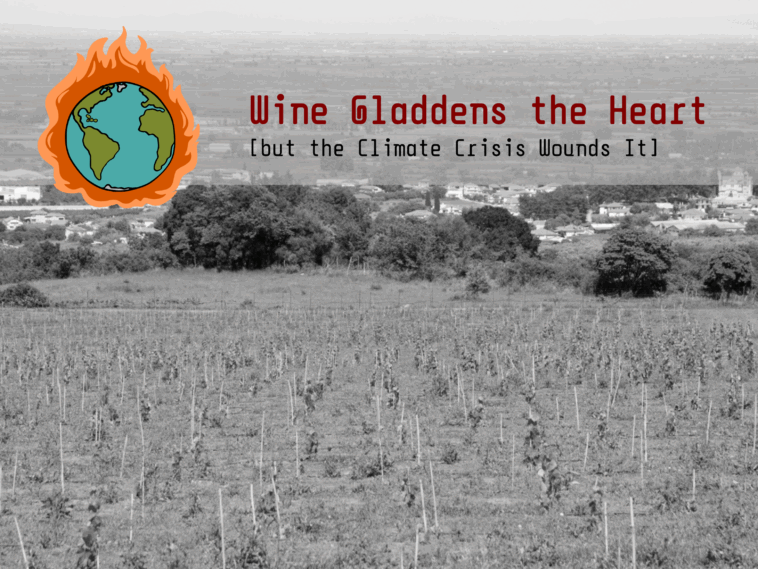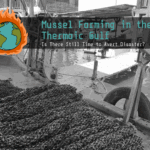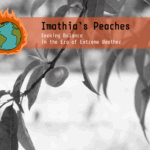They say that when you drink a wine you can grasp the identity of a place: its environment, the local climate, the humidity, even the slope of the ground. All of these are imprinted in the dozens of wine varieties, some of which have been cultivated for hundreds of years in specific regions of our country and are tied to their histories. The vine, after all, is considered one of the oldest crops in Greece; it thrives where it has best adapted, while climate is regarded as the most fundamental factor in its development.
Unfortunately, in recent years the abrupt weather changes, with late frosts in spring and severe hail on the one hand, and drought and prolonged heatwaves on the other, have caused great concern among viticulturists, who are seeing a decrease in production volume and wondering whether some varieties will, in the future, become unsuitable for the regions where they are cultivated. According to the competent department of the Ministry of Rural Development and Food (ΥπΑΑΤ), for the 2023/24 winegrowing year, the volume of wine production in our country recorded the lowest levels of all time.
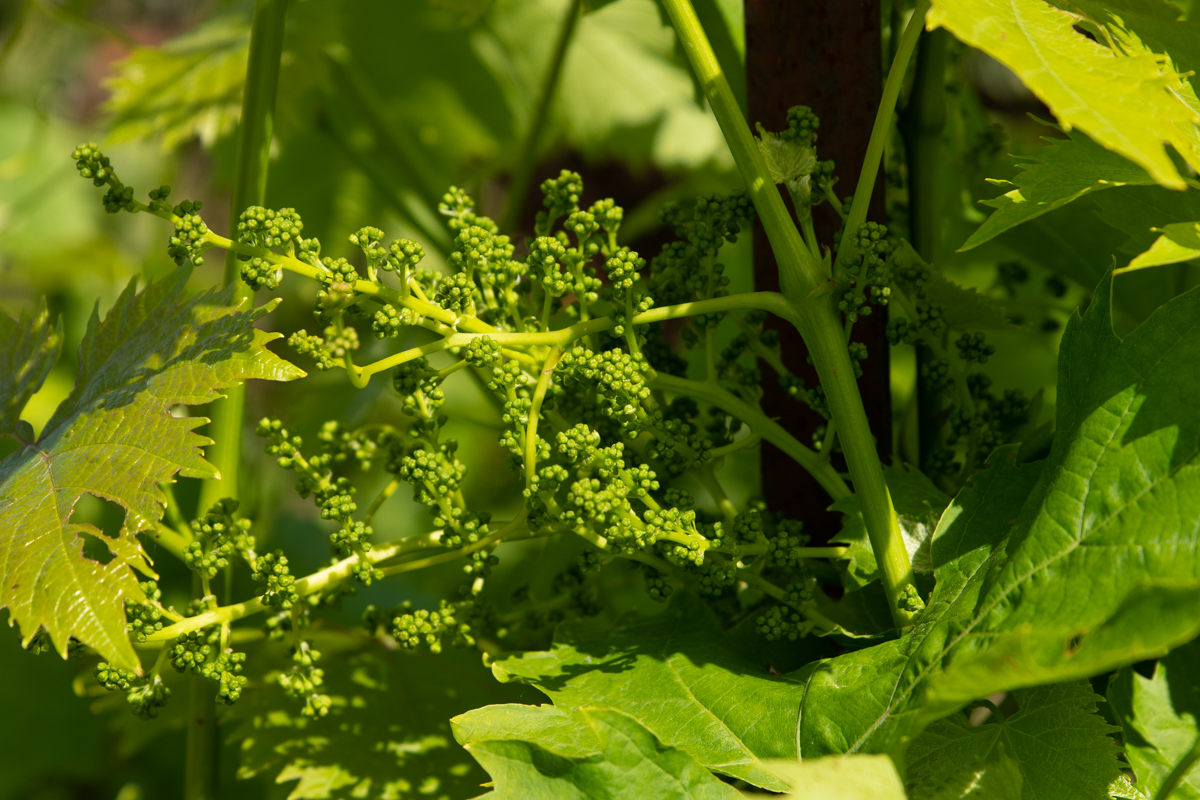
Obviously, the climate crisis is not being spoken of only by Greek wine producers but by growers across Europe and the globe. In France in 2023, wine producers affected by extreme climatic conditions sought compensation either to cease production or to change crops. This concern is also reflected in the results of a study by Bordeaux Sciences Agro, CNRS, Université de Bordeaux and Université de Bourgogne, published in Nature Reviews Earth and Environment, which showed that if global warming exceeds 2°C, about 90% of all traditional viticultural areas in the coastal and lowland regions of Spain, Italy, Greece and Southern California may no longer be able to produce high-quality wine under economically viable conditions by the end of the century, due to the risks of excessive drought and more frequent heatwaves.
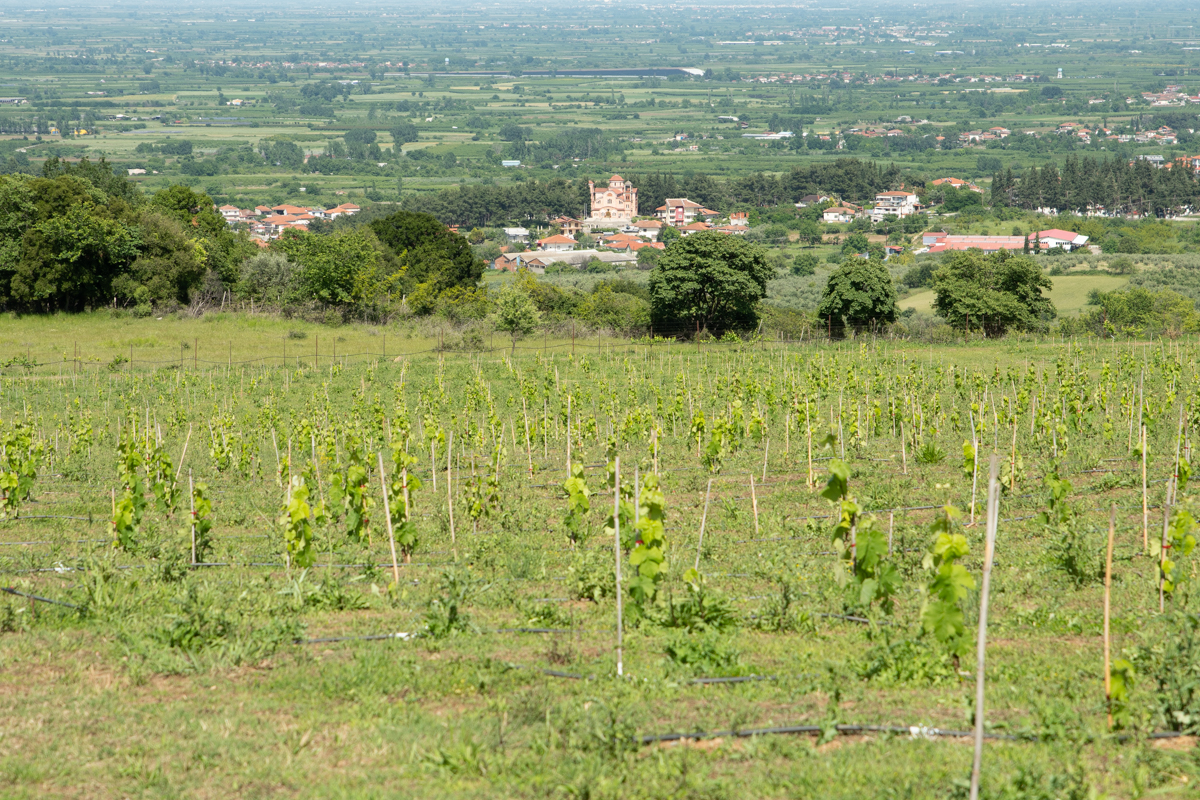
Xinomavro in Imathia seems, for the moment, to be holding on…
The history of wine in Macedonia and Thrace dates back to the end of prehistoric times. In the region of Imathia, the earliest information about viticulture, vineyards and wine production reaches us from the years of Ottoman rule.
In Patrida, Imathia, among the first areas to receive a PDO classification in 1974 for the Xinomavro variety, stands the winery of Christos Taralas. A third-generation viticulturist, he has developed an integrated system of organic cultivation, wine production and bottling.
“Organic cultivation has been developed since ancient times. Over time it has evolved, and we have seen that it contributes to the sustainable development of agriculture, which means we have a better, higher-quality product without pesticide and chemical residues that enter the food chain. The difficult thing with organic farming is that you have to, in a way, prevent any diseases that may arise in the crop, whereas with conventional cultivation you can intervene after the fact, but the final product is very different. We’re talking about more quality characteristics and more elements that highlight the place where the agricultural product grew and, by extension, confer different characteristics to it,” explains Chr. Taralas during a tour of his vineyard.
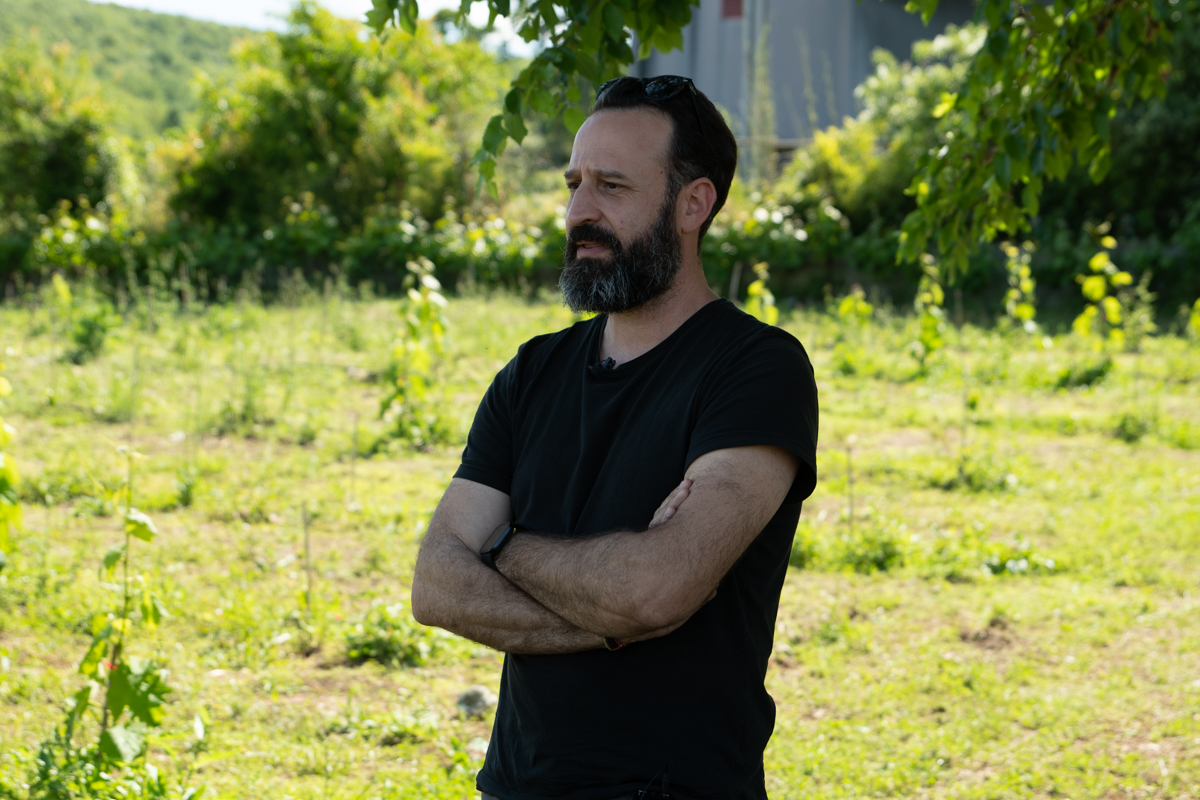
As he notes, Xinomavro is a variety that ripens on sloping and semi-mountainous soils, a process aided by underground water currents which, through rainfall or snowfall, are stored in the aquifers of mountains such as Vermio, and yield a very good final product.
One of the main effects of the climate crisis is the faster ripening of grapes. “What we’re seeing is very great instability in the weather. Last year, for instance, had a very warm winter, with the result that we did not have much water in the soil. The very hot summer brought grape ripening about a month earlier. Those who couldn’t irrigate their vineyard faced difficulties, because they had neither large berries nor the usual quantities of other years. Global warming and rising temperatures hinder development and lead to drought. So we see smaller growth in both the plant and the fruit. Of course, in Xinomavro we have observed that perhaps in some years when there is a balance in temperatures, either in winter or in summer, we achieve better ripening, but this remains to be seen in the coming years. We cannot say, however, that rising temperature consequently benefits overall cultivation.” And that is because, as he says, increased temperature stresses the plant so that it cannot develop as it should.
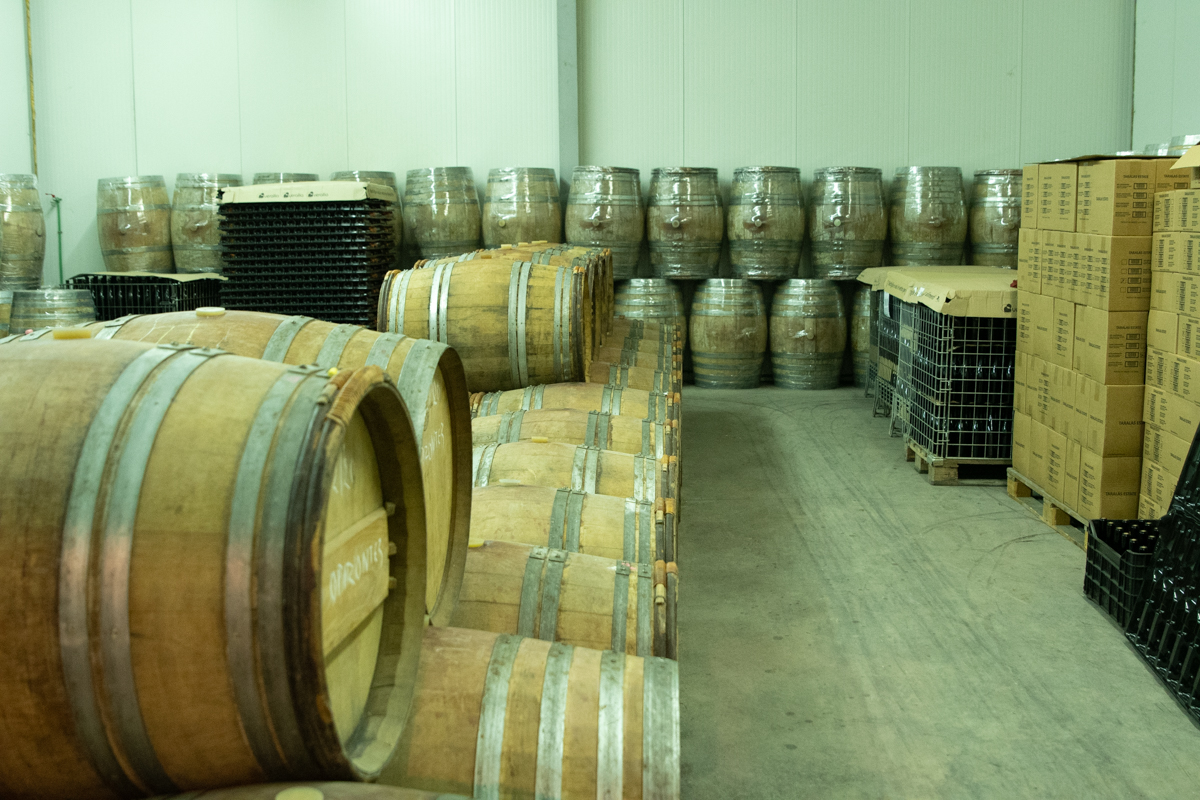
“We want the root system to go down into the soil, in other words, if the plant searches for the aquifer and doesn’t find it, it dries out. Also, when proper grape ripening doesn’t occur, the grape does not develop, with the result that raisined berries contribute nothing to the final product,” the winemaker continues.
Watch the video: In Imathia, grapes seem to be holding on
The climate crisis affects the adaptation of the best-known varieties
Dimitris Taskos has worked for three years as a researcher at ELGO-Dimitra’s Institute of Plant Breeding and Genetic Resources in Thessaloniki, while also bringing 25 years of experience in the wine industry. For him, the vine is an organism cultivated where it has adapted, within a specific environmental framework.
“Within this framework, climate is the dominant factor, with the basic parameters being temperature, available moisture, radiation, etc. Above all, what determines things is temperature, it is the measure of the available energy that exists in a place, in a specific climate. One of the things that climate change does, it’s now proven, is that it affects the vegetative cycle of the vine: how quickly plants develop, when growth starts and when it ends, which for us is chiefly the technological maturity of the grapes, whether for winemaking or for table use. This means it affects the adaptation of the well-known varieties, the ones we’ve used for many years, some for hundreds of years in a place, so it directly affects their adaptation. This has consequences on many levels.”
Listen the podcast /Dimitris Taskos: The climate change cannot be treated only with technical solutions
For the researcher, there are two levels of discussion regarding the climate crisis issue. One concerns viability, and the second the technological traits that a production displays in a specific area. Moreover, he says, when we talk about climate change we should keep in mind not only increased temperatures but also variability, that is, “an organism may adapt to a normal temperature curve, but it is very difficult to adapt to changes that occur with high frequency over a short period.” Prolonged hot-dry conditions but also concentrated periods of rainfall and hail, he notes, affect the following growing season as well, and may lead to qualitative and quantitative losses due to disease outbreaks and difficulties in crop protection. What is certain for Mr. Taskos is that we are dealing with a phenomenon that is evolving and requires observation and research; however, production is already recording an average decrease of about 30–40%. This is also shown, for the second year, by official data from the competent department of the Ministry of Rural Development and Food to the European Commission, as the 2024/25 winegrowing year recorded a production volume of 1,430,666 hectoliters (hl), down 32.73% compared to 2023 and the second lowest in history, after last year (2023/2024), when production was marginally lower at 1,379,433 hl, according to information from the Central Cooperative Union of Vine and Wine Products (KEOSOE).
The definitive production based on declarations by wineries and wine-processing producers appears slightly increased by 3.92% in 2024/2025 compared to production in 2023/2024.
A multifactorial problem, symptomatic fixes are not enough
While vine growers seek solutions through better management of water resources, the discussion about changing varieties has already begun, something that creates even greater concern, as the bond between a region and its varieties within a geographical indication framework is at risk of being broken.
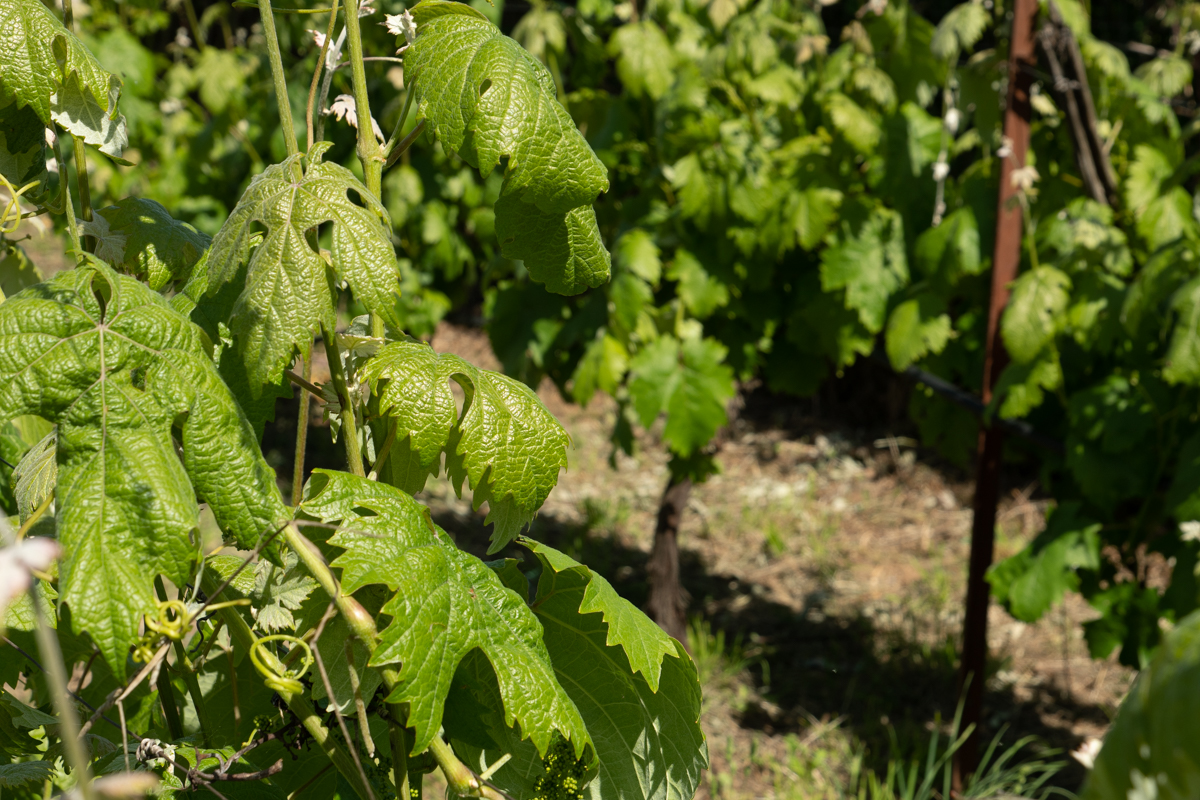
For Dimitris Taskos, among the proposed solutions for the survival of production in place are the geographical shift of certain cultivation zones, and thus of varieties, or the introduction of others that will have characteristics allowing their economic and technological/agronomic adaptation. As he points out, however, “these things are easy to say but hard to do. Because saying that cultivation zones will shift within such a regulated framework of geographical indications, the EU framework and the national one, within a market built upon them, is not easy. But I don’t rule it out as one of the ways by which the wine sector in each country, and in each region within each country, will try to adapt. Still, it’s not that simple to say, ‘you know, we move the vineyard from 200 meters to 800 meters, where temperatures are different.’ That is not the adaptation solution; we can’t seize on a single factor and address it. The problem is multifactorial.”
“We’re talking about a crop that expresses the place where it is planted after the first 10-15 years. So it’s not easy to plant a new vineyard every 15 years,” notes Chr. Taralas, adding: “We need to find the ideal conditions and locations so that we plant the vineyard now and it lasts for more than 40-50 years, in order to yield a very different fruit.”
Asked whether the government supports initiatives to confront or adapt to the phenomenon, the answers are, unfortunately, as expected. “There is, I would say, a very good collaboration between vine growers and winemakers with the universities. There is a major problem at this moment in our sector’s contact with the Ministry, because it is understaffed. Our efforts as growers and winemakers are to try to communicate our product both to the local community and abroad, and we see that this receives support, but it is also difficult,” says Mr. Taralas. According to him, there are pressures so that European funds and programs intended for viticulture are properly managed, in order to support and develop the sector.
Even so, as Mr. Taskos makes clear, scientists cannot take on nature alone. “The government does nothing. I would suggest you ask a second question: what is the wine sector doing? The answer is that it does halfway measures and, in reality, in my opinion, it does nothing.”
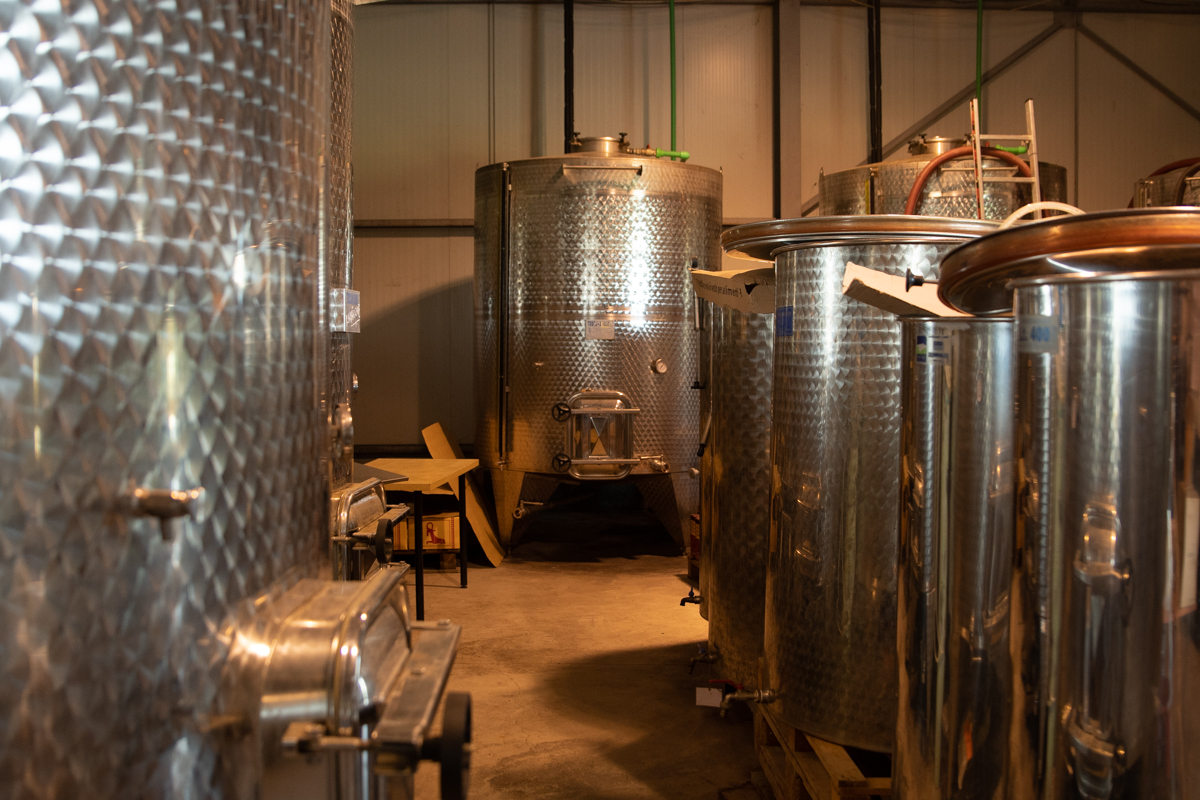
Photo Credit: Afroditi MichailidouFor growers and researchers, discussing adaptation is self-evident. However, a symptomatic response to a global phenomenon like climate change often leads to half-measures. “There is no other way than to sit down and plan strategically. You cannot do it piecemeal, and under no circumstances is it solely in the hands of the scientific community, that is a huge mistake. The real causes must be identified, what is to blame, and perhaps a change in the production model is needed,” the researcher emphasizes.
In any case, as to whether European policies help solve the problems, his answer is more than clear: “If someone does a simple online search and enters the words climate change and vineyards or wines, they will find a huge volume of information in official EU texts, including the CAP. But the point is what you ultimately do, not just whether you write five things, some of which may indeed be correct; it’s about how you motivate people. I do not see people being motivated, and that is why I mentioned that one of the consequences of CAP implementation thoughout the past decades is that the countryside has lost its people. How will you have a resilient countryside and resilient vineyards when you don’t have people to cultivate them?”
Up next: Mussel farming in the Thermaic Gulf: Is there still time to avert disaster?
The research “The Climate was already bad” was realised with the support of Rosa Luxemburg Stiftung-Office in Greece. Read the complete research here.
